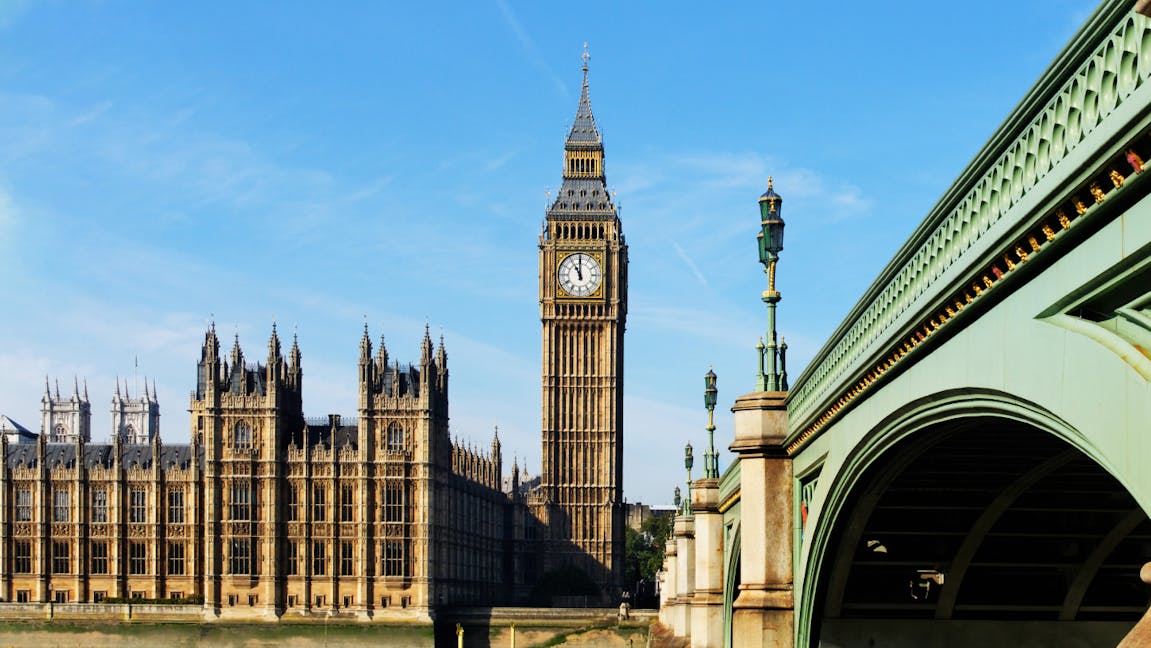
We break down the main changes announced in the Autumn Budget 2024, and our team of expert financial advisers comment on what it could mean for investors.
At a glance:
- The Autumn Budget announcement on 30 October 2024 was the first to be revealed by the new Labour government and was hotly anticipated
- Chancellor of the Exchequer, Rachel Reeves, was hoping to find £40 billion via tax changes and cost cuts
- Our financial advice and investment experts break down the major changes for investors and savers
- The main changes are to capital gains tax, National Insurance Contributions from employers, and inheritance tax
What made this Autumn Budget so hotly anticipated?
The Autumn Budget 2024 was the first from Prime Minister Keir Starmer’s Labour government, and the first from a non-Conservative Party government in 14 years.
It was always going to be highly anticipated.
However, Chancellor of the Exchequer, Rachel Reeves, heightened the anticipation further by setting herself the target of raising the huge sum of £40 billion.
It was followed by weeks of speculation around where – in a likely combination of spending cuts and tax increases - she might go looking for it.
Now we know.
What happened in the UK's Autumn Budget 2024?
Comments from the new Chancellor of the Exchequer and others in the Labour Party leadership had effectively ruled out some changes to how tax works, including changes to income tax. This reduced the number of ways the Chancellor could raise money.
This transparency also provided time for investors and broader markets to digest potential changes. Chancellor Reeves would have been mindful of the sharp market reaction to the mini-Budget announced by Prime Minister Liz Truss when she was in office.
Below we explain the main changes to the tax system and how it might impact how you save and invest.
What changed on National Insurance contributions in the Budget?
One of the most impactful changes announced in the Budget was to lift employers' National Insurance contributions from 13.8% to 15% from April 2025.
There was also a pretty startling drop in the threshold at which businesses start paying National Insurance contributions, which fell from £9,100 to £5,000 per year.
What do our expert financial advisers think?
"While increasing employer National Insurance contributions does not directly impact the take home pay of working people today, it will be something business owners will need to consider and factor in with future plans."
What changed on capital gains tax in the Budget?
As a reminder, gains on investments held outside of a tax wrapper – such as a pension or ISA – will usually attract capital gains tax (CGT). If for example, an investor made a sale of an asset in a general investment account, and the asset had gained more than the annual exempt amount, which is your annual tax-free allowance, there would be a tax bill. Gains made within the annual exempt amount – explained further below – are not taxed.
This tax also impacts the sale of homes that are not the primary residence, such as second homes, holiday homes and/or investment properties.
1. Capital gains tax rates changed
CGT rates determine the amount of tax that is attracted (needs to be paid) when gains exceed your CGT annual exempt amount. Some assets do not count towards capital gains.
There are three different CGT rates:
- Basic – If you pay basic rate income tax
- Higher – If you pay higher rate income tax
- Additional rate – If you pay the additional rate of income tax
It also depends on whether the asset is property or not.
The 2024 Autumn Budget increased the rate of CGT for basic rate taxpayers from 10% to 18% on gains on chargeable assets (for example, shares not held in an ISA). The current 18% CGT rate on residential property will remain the same.
For higher or additional rate taxpayers, the Budget increased the rate of CGT on gains on chargeable assets from 20% to 24%. The 24% rate on residential property remains unchanged following the Budget.
2. Capital gains tax exemption did not change
The annual CGT allowance has fallen drastically over the past few years. The annual CGT allowance was £12,300 in the 2022/23 tax year, and by the 2024/25 tax year had fallen to £3,000. That means there was less tax “juice” to squeeze from here, and indeed no change was announced to the allowance.
What do our expert financial advisers think?
James McManus, Nutmeg's Chief Investment Officer, said "As a rule of thumb, saving or investing as much as you can, as early as you can in an ISA is usually a good idea. Any interest or investment returns are protected from capital gains tax and income tax – and with most ISAs – you can access the money if you need to. With changes to capital gains tax announced in the Budget today, this has become even more important.
"If you don't have spare cash, but you hold investments in a general investment account, now could be the right time to move these to an ISA, as increased rates of capital gains tax may see you handing more of your returns to the tax man.
"If you're putting money away for children under the age of 18, Junior ISAs allow you to save or invest, tax efficiently, an extra £9,000 per year, per child. Although, it's important to know upfront that any money in a Junior ISA belongs to the child, can only be accessed by them and only once they've turned 18."
What changed on inheritance tax in the Budget?
When a person dies, the assets they leave behind form their 'estate'. Inheritance tax (IHT) is charged on the estate left, but only if it exceeds a certain threshold, and only if it does not pass to a spouse, civil partner or a charity.
The 2024 Autumn Budget extended the freeze on the IHT thresholds for a further two years, to 2030. That means the first £325,000 of any estate can be inherited tax-free, rising to £500,000 if the estate includes a residence passed to direct descendants, and £1 million when a tax free allowance is passed to a surviving spouse or civil partner, the Chancellor confirmed.
Chancellor Reeves said she will bring inherited pensions into inheritance tax from April 2027. The Chancellor added she will reform Agricultural Property Relief and Business Property Relief.
What do our expert financial advisers think?
Chris Liebetrau, Financial Adviser at Nutmeg, said: "The Chancellor has announced some major changes to the treatment of pensions with regard to inheritance tax, but we await further detail on what they mean for the future of financial planning. The UK currently faces a significant retirement savings gap, with 42% of adults saying they know they are not saving enough for their retirement. We would hope any changes avoid unintended consequences that deter people from saving enough for their life after work."
What are "fiscal rules" and why do they matter to markets?
Figures from the Office for Budget Responsibility indicate that spending and investment plans announced by the Chancellor will require an additional £32 billion per year of borrowing to fund them.
Fiscal rules determine how much capacity the UK government has to borrow. An important element of this is how debt is defined. In her Budget speech Chancellor Reeves confirmed that the definition of debt in the UK government would change, creating some "fiscal headroom".
Exactly what the change means is one for accountants to pore over. What is important is that this was closely watched by market participants, because of the panic that followed former Prime Minister Liz Truss' mini-budget.
Scott Gardner, Investment Strategist at Nutmeg, explains that bond markets did react but did not panic.
"Market reaction during the Budget was muted. In the hour that followed, the UK 10-year gilt went from 4.20% to 4.40% and expectations for rate cuts from the Bank of England have reduced to a single cut for the remainder of the year."
Speak to the Nutmeg team
If you'd like to speak with someone about the changes announced in the Budget, we're here to help. Click here to book a free call with a friendly member of our wealth services team.
You can book a free initial consultation with us any time, where we'll get to know a bit about you and your circumstances, and then recommend whether or not advice could be right for you. If you choose to go ahead, we'll build your financial plan and help you implement it for a one-off fee. Nutmeg provides 'restricted advice', which means we will only make investment recommendations on the products and services that we offer.
Risk warning
As with all investing, your capital is at risk. The value of your investments can go down as well as up and you may get back less than you invest. Tax rules depend on individual status and may change. To open a Nutmeg JISA, the child must be under the age of 16 and funds cannot be withdrawn until the child turns 18. Past performance and forecasts are not reliable indicators of future performance. We do not provide investment advice in this article. Always do your own research.
